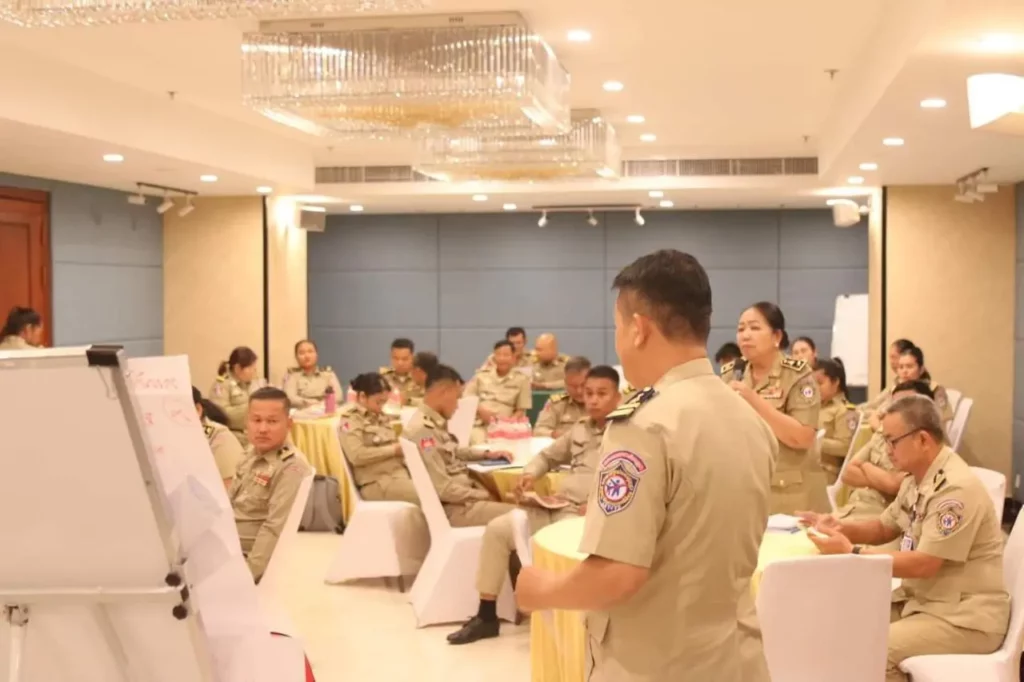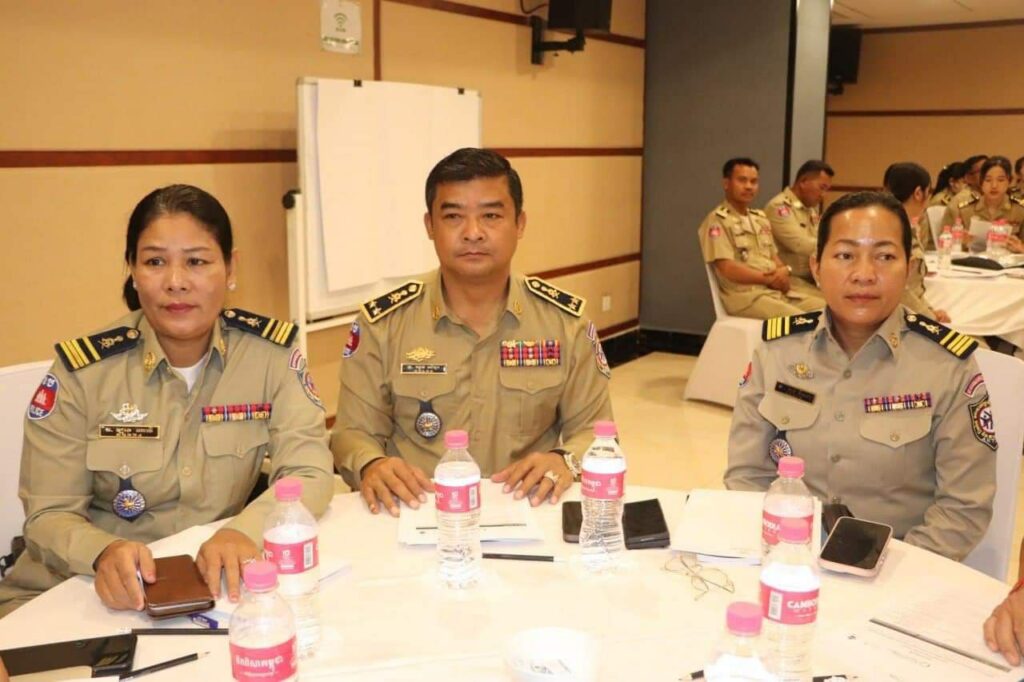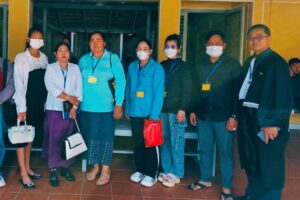Early Prevention
Criminal Justice Development Initiatives

Summary
APLE's Criminal Justice Development Program aims to build the capacity of law enforcement and justice professionals, equipping them with the knowledge and tools to effectively investigate and prosecute child sexual offenses. This ensures perpetrators are brought to justice while protecting the victims throughout the process.


Capacity Building and Training
In collaboration with the Cambodian National Police (CNP) and the Ministry of Interior (MoI), APLE organizes specialized training sessions that focus on child-friendly investigation techniques and child protection strategies for police officers and court officials. These sessions cover essential topics such as applying child-centric approaches in investigations, understanding child sexual abuse and exploitation, and promoting child-friendly standard operating procedures.
Mentorship and Technical Assistance
APLE also provides ongoing mentorship and technical support to trained officers, helping them apply their new skills in real-world scenarios. This includes supporting police officers in conducting proper victim identification, forensic interviewing, and executing investigations in a child-centric manner.
Information Sharing and Advocacy
A crucial aspect of our program involves compiling and forwarding information about suspected cases of child exploitation to law enforcement for further investigation. Through our hotlines, APLE gathers reports from the public, partner NGOs, victims, and witnesses. This data is then shared with relevant authorities to advocate for timely and just prosecution of offenders. The program’s success is underpinned by a formal Memorandum of Understanding (MoU) with the Ministry of Interior, ensuring strong governmental support and cooperation
Challenges
Supporting and protecting child survivors throughout the judicial process involves numerous challenges. These obstacles can hinder law enforcement and judicial professionals' ability to provide comprehensive and effective services for child victims of sexual exploitation and abuse.
Resource Limitations: One of the primary challenges is the lack of adequate resources, including funding and specialized personnel, such as experts in trauma-informed care and child-friendly investigative techniques. Budget constraints often limit the scope and frequency of training, mentorship, and technical assistance programs essential for building capacity within law enforcement.
Complexity of Legal Procedures: Navigating the judicial system can be particularly daunting for child victims and their families. The complexity of legal procedures and the oftenlengthy duration of cases can result in additional stress and trauma for the children involved. Ensuring that courtroom environments and investigative processes are child-friendly remains a considerable challenge.
Social and Cultural Barriers: Social stigmas and cultural taboos around sexual exploitation and abuse can deter victims and their families from reporting incidents.
360+
Law enforcement professionals reached through training and workshops in the past year
90+
Cases opened and referred to law enforcement, involving 94 suspected perpetrators last year
Recent Activities

Math Teacher Faces Court as Eight Child Survivors Testify in Kandal Sexual Abuse Case
A 38-year-old mathematics teacher appeared before the Provincial Court of First Instance in Kandal province on Monday, December 9, 2025,

Phnom Penh Municipal Court Opens Hearing in Case of Attempted Rape of A Three-Year-Old Girl
The Phnom Penh Municipal Court opened a hearing in a criminal case involving the alleged attempted rape of a three-year-old

